

Polyamorous Myths
There are all kinds of myths about Polyamory. Here are some of the questions and concepts I am faced with when people are trying to grasp Polyamory but come at it from a position of stereotypical monogamous mindsets:
 Well, yes, having open and honest relationships with multiple people allows you the opportunity for group sex. I mean, if you're in a monogamous relationship or you're cheating on your partner, or you have Don't Ask Don't Tell policies, you're not very likely to be able to talk your partners into hot orgies. However, Polyamorous relationships are not about the sex. They're about the relationships, which may or may not include sex.
Well, yes, having open and honest relationships with multiple people allows you the opportunity for group sex. I mean, if you're in a monogamous relationship or you're cheating on your partner, or you have Don't Ask Don't Tell policies, you're not very likely to be able to talk your partners into hot orgies. However, Polyamorous relationships are not about the sex. They're about the relationships, which may or may not include sex.
So in order to have group sex, you still have to have a relationship that includes multiple partners who actually want to have sex with each other. And that's not very common, even within the poly community. Not all poly people are bisexual (which is required if you have partners of the opposite sex from you and you want them to have sex with each other), and not all Poly relationships are group-partnered. Vees and Ns and Lines are far more common than Triads, Quads, and other multi-partner groups.
All your partners should know about each other, and many of them might even be good friends with each other, but that doesn't mean that they all want to hop into bed with each other. Many poly people who have had multi-person relationships have never had group sex ... some aren't interested and some just haven't had the right mix of partners.
Plus, many of us have partners that don't share a home with us and some are even long distance, living outside the city, state, or even the country. Also, many people are polyamorous because it gives them the opportunity to have less time with or obligation to their partners, since their partners can have other partners of their own to occupy their time and/or sexual experiences, giving someone with a lower libido or less free time a "break". Some polyamorous people are even asexual, and, just like within the monogamous population, there are poly people with medical issues or time constraints or low sex drives.
It is common for people in the early stages of their relationship, regardless of relationship style, to have lots of sex at first, and maybe that tapers off as time passes. And since poly people have the ability to start new relationships while enjoying an ongoing relationship, then hypothetically it's possible for poly people to engage in the New Relationship Excitement practice of shagging like bunnies more often or for longer periods than monogamous people who have long-term monogamous relationships where the initial NRE has worn off and they can't start a new one until the old one ends.
But the reality is, in my experience and observation, that with so many emotional relationships going on at once, we tend to spend a lot of time processing about relationships and our emotions, and not nearly as much time shagging as some of us would like. A common poly joke is "More sex? Hell, I spend so much time talking, I hardly ever get laid!"
 This phrase just bothers me. It assumes that people are not whole people, but rather puzzle pieces designed for fitting into pre-determined holes. It completely ignores the fact that people are whole and complete individuals all unto themselves AND that each relationship is its own unique and individual entity with needs of its own. It is true that you might find different qualities with different partners.
This phrase just bothers me. It assumes that people are not whole people, but rather puzzle pieces designed for fitting into pre-determined holes. It completely ignores the fact that people are whole and complete individuals all unto themselves AND that each relationship is its own unique and individual entity with needs of its own. It is true that you might find different qualities with different partners.
For instance, maybe one of your partners enjoys dancing and another really likes quiet evenings at home and taking care of the house. But chances are that they probably have quite a few things in common with each other since they all share things in common with you. You might also find that some activity or interest you want to share with a partner is not present in any of your current partners. Another interesting phenomenon that also happens is that each relationship has different needs and you might find that you desire a particular quality, not in general, but with a specific partner only.
For example, some people think they need massive amounts of "alone time" or "me-time" and personal space. They tend to feel closed in or claustrophobic if they don't have their own bedroom or office space or even their own house entirely. But then, they might get into a relationship where this partner does not threaten or confine their need for "alone time" and they find they can be happy with less space or less time apart than they thought. What happens is that they needed X amount of hours in "me-time" with a particular partner, but they don't have that same need with another partner. In addition, relationship "needs" are not transitive. If you desire Quality Time with one partner and aren't getting it, getting Quality Time with another doesn't solve that problem.
The trick here is to see yourself as a complete and whole individual, worthy of love. Once you see yourself like that, your partners cease to be puzzle pieces that you try to fit into your life to create "a whole" happiness. They instead become what they are ... people who enrich and add to your quality of life, rather than people who are responsible for your happiness. You can then enjoy them for the benefits they bring to you (and you to them) without expecting them to provide your happiness for you ... because we are each responsible for our own happiness and expecting someone else to provide it will undoubtedly lead to failure. For more on this subject, read Some Thoughts On Needs, Objectification, & The Magic Genital Effect where Franklin Veaux talks about people as need fulfillment machines.
One way to look at it is like this: Swinging is recreational sex; there may or may not be love. Polyamory is multiple loves; there may or may not be sex.
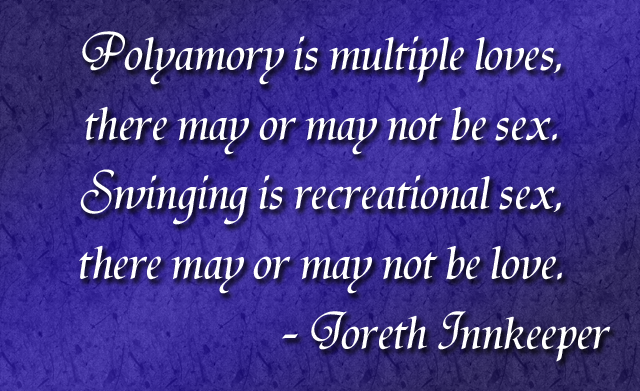
What makes a poly person different from a monogamous person who just has "friends" is that the negative implications that come with the phrase "just friends" do not necessarily apply to the relationships that a poly person has. It is possible for a poly person to have multiple relationships with deep emotional intimacy, a high level of entwinement, financial entanglement, and life-long or long-term intentions and commitments.
Imagine every relationship you've ever had, from the casual one- or two-night dates to spouses. Now imagine all of those relationships happening all at the same time, or several overlapping each other over time. That isn't quite the same as the image of all your "friends" over your lifetime occuring at once, whether you had sex with your "friends" or not.
They gave space in one chapter to the possibility that some couples may include extra-marital sexual relationships and discussed "Love Without Jealousy". But the O'Neill's never intended for their book to become the jumping-off point for a whole movement of sexually infidelitious marriages. They regretted ever including that chapter, and devoted a whole chapter in their following book on sexual fidelity. But by then, it was too late. The term "open marriage" became synonomous with extra-marital sex.
The open marriages of the '70s and '80s were very much couple-centric, meaning that they focused on maintaining a primary married couple whose lives were entwined just as any other monogamous couple, but who had sexual partners "outside" of their marriage. This could be arranged in a variety of ways, but the focus was always on maintaining the couple's marriage. Much of the effort in maintaining this couple was directed towards rules designed to limit the extra-marital relationships, usually emotionally, from competing with or rivaling the primacy of the original couple.
Polyamorous relationships are not necessarily couple-centric. There are some couples who see polyamory as the "new open marriage" and seek to maintain their primary relationship status over any extra-marital relationships, but this is a choice that these couples make, and it is not inherent in the concept of polyamory itself. One is just as likely to find people seeking to form triads where all three members are equally "married" to each other, as they are to find these couple-centric dyads who want to maintain their primary couplehood. But one is also likely to find a much, much larger diversity of options, including quads, networks, solo polys, relationship anarchists, poly/mono combinations, and more, with and without any sort of "marriage" amongst the members of any given group. (These terms all found in the Terms page)
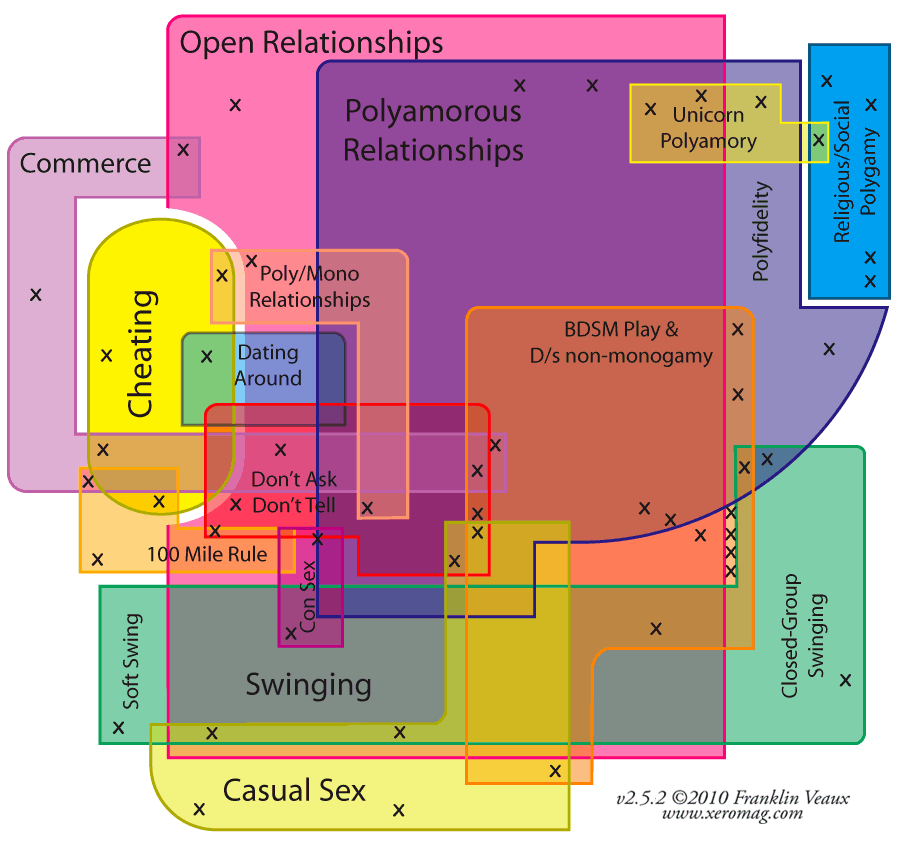 These days, there are so many different styles of non-monogamous relationships that it's hard to keep track of them all. One attempt was made to show the different styles in a Venn diagram. This chart also shows the difference between "open" and "closed" non-monogamous relationships. Basically, today the term "open" in a relationship means that the people have the ability to seek or engage in other romantic or sexual relationships, regardless of how many people are currently in the relationship or regardless of what structure the people use.
These days, there are so many different styles of non-monogamous relationships that it's hard to keep track of them all. One attempt was made to show the different styles in a Venn diagram. This chart also shows the difference between "open" and "closed" non-monogamous relationships. Basically, today the term "open" in a relationship means that the people have the ability to seek or engage in other romantic or sexual relationships, regardless of how many people are currently in the relationship or regardless of what structure the people use.
While "closed" refers to the lack of ability to seek or engage in other romantic or sexual relationships, regardless of how many people are currently in the relationship or regardless of what structure the people use. A monogamous marriage and a closed triad are both relationships in which its participants are not eligible for additional relationships. Swingers, people in a poly triad, people in a poly network, relationship anarchists, and many more are a subset of "open relationship" because they are eligible for additional relationships if they choose.
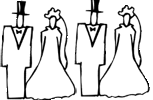 Well, if you can't commit to one person, you definately can't commit to two! Polyamory is about forming committed relationships, just more than one of them simultaneously. Long-term committments are made and kept in polyamorous relationships. There are many different things a person can commit to, sexual fidelity is only one of them. Most monogamous people in our society practice "serial monogamy", which is actually the practice of having multiple relationships, one after the other, over one's lifetime. This seems to me, a more accurate example of someone who can't commit.
Well, if you can't commit to one person, you definately can't commit to two! Polyamory is about forming committed relationships, just more than one of them simultaneously. Long-term committments are made and kept in polyamorous relationships. There are many different things a person can commit to, sexual fidelity is only one of them. Most monogamous people in our society practice "serial monogamy", which is actually the practice of having multiple relationships, one after the other, over one's lifetime. This seems to me, a more accurate example of someone who can't commit.
Poly people do not throw away their lovers when a new person comes along. Many serial monogamists see their lovers as expendable, someone to discard when someone better comes along. They may not think of their current partner as "expendable" if they believe that they are "in love" or have found The One. Certainly their past relationships were "expendable" since they are no longer with them in order to be with their current partner.
But once they meet another person who matches with them, and believing that they can't love more than one person at a time, they tend to dump the existing partner for the new partner, thinking that if they fell in love with the new person, then something must be lacking with the old person; since they love the new person, he or she must be "better than" the old one. Polyamorists don't see people in terms of "better than", we see them as unique individuals who all contribute to enriching the quality of life and therefore are not expendable or replaceable. We merely attempt to make room for new people without usurping the existing people first.
Individuals take responsibility for their own actions and for their own safety by regular physical checkups, STD testing, and often engage in dialog that includes a full sexual history of everyone involved. Agreements like Condom Contracts and Fluid Bonding are also common in poly relationships, where individuals limit their sexual activity outside of an established group. Compare that to the mindset of our monogamous society that is more comfortable approving cheating than open relationships, and is hesitant to share sexual history or have explicit conversations about sexual safety and understanding about sexual biology, and you have a subculture that is more responsible as a whole than the overall culture from which they came. More on this in the Safer Sex page.
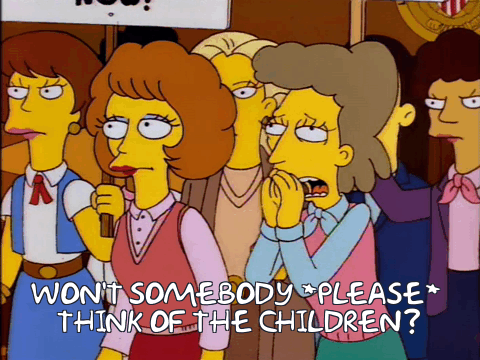 This really falls under a fear of sexuality, rather than any evidence that multi-relationships in general are harmful to children. There are well-adjusted children in monogamous relationships and there are well-adjusted children in polyamorous families, just as there are disturbed children of both. A single mother with a long string of abusive, temporary lovers is certainly more damaging than a family that includes 3 adults in a polyfidelitous, loving home.
This really falls under a fear of sexuality, rather than any evidence that multi-relationships in general are harmful to children. There are well-adjusted children in monogamous relationships and there are well-adjusted children in polyamorous families, just as there are disturbed children of both. A single mother with a long string of abusive, temporary lovers is certainly more damaging than a family that includes 3 adults in a polyfidelitous, loving home.
And what about those children who have two or more step-parents and are shuttled around every weekend, month, summer, or what-have-you in a constant state of instability, always afraid to develop emotional attachments to adults because the parents keep rotating them out as if through a circular door? Don't forget the two-parent families where the "love is lost" and they are only together "for the children", yet the children can feel the tension and anger in the home, particularly if the parents fight openly or use their children as weapons against their partner.
There was a time, throughout most of human history, when we understood that it took a tribe to raise a child. Parents only recently became isolated monogamous couples with no outside support in childrearing. Children were usually raised in homes that included grandparents, aunts, uncles, cousins, and sometimes servants and household employees. It took this many adults to adequately care for children. In our society today, it is nearly impossible to provide for a household without at least two incomes, and with both parents out of the home to earn money, children are raised by daycare or other relatives.
In a poly home, you can have two or more incomes and still have a full-time caregiver who is part of the family. You have several adults to provide discipline and love and attention. You have an atmosphere that emphasizes love as a preferred relationship foundation and good communication skills, many of which include egalitarian structures providing good role models for children about gender issues and advocates personal responsibility and honest, ethical treatment of others.
When it comes right down to it, proponents of this myth will usually get to the root issue, which is a fear that the kids will be exposed to all kinds of kinky sex orgies. Monogamous people are just as likely as poly people to engage in kinky sex. Which is to say there are people in both relationship styles who enjoy bizarre sex games and people who enjoy basic, missionary sex and everything in between.
The big difference is that a poly family will tend to develop tools for open communication and be more comfortable discussing difficult topics like sex and health and emotional issues, and would therefore be potentially more capable of healthy conversations and education with their children about these same issues. Just as monogamous people are expected to use discretion when it comes to exposing their children to sexuality, poly people are capable of the same level of discretion. In other words, what happens in the bedroom is just as likely to stay in the bedroom. Don't overlook the fact that not all poly families have children. Some of us are Childfree By Choice and our families include adults but not children.
There is not much in the way of research for polyamory, compared to other forms of relationships or other societies, but the body of research is growing. We know from several longitudinal studies that children of same-sex parents turn out to be just about as well-adjusted as children of opposite-sex parents - that is, whether they are well-adjusted or not depends on other factors like how stable the parents' relationship is and what kind of parents they are, rather than the sex of the parents. And we also now have the first longitudinal studies of children in in poly families.
Dr. Elisabeth Sheff released a book in 2013 about her many-year study of children in poly families. And in her book, she found the same conclusions as the same-sex studies - that the mental and emotional health of the children has to do with how stable the parental figures' relationships are and what kinds of parents they are, and that the gender and number of adults has very little influence over the children's well-being. Which, given the tribal nature of childrearing for the bulk of human history, shouldn't really be a big surprise. As long as the adults love the kids and provide them with a stable roof over their heads, decent food to eat, attention, and appropriate discipline, kids turn out just fine no matter how many of the adults are in the house or what the adults do with their private parts in private.
But what about children who are adopted? What about children who have step-parents? What about children whose parent or parents have died? What about children who are raised by single parents? What about children who are raised by grandparents or aunts or uncles or other extended family members? What about children who have gay parents? All of these are examples of monogamous parent families and all of these are examples of children who have figured out, one way or another, who their "parents" are.
 As an adopted child myself, I was raised in a monogamous, Christian home with adults who have been married since high school and are still married. And yet, I know who my parents are. My biological parents are the two teenagers who provided my genetic material, and my mom and dad are the man and woman who raised me, sacrified for me, and dedicated their lives to providing me with a firm foundation of love, discipline, and responsibility.
As an adopted child myself, I was raised in a monogamous, Christian home with adults who have been married since high school and are still married. And yet, I know who my parents are. My biological parents are the two teenagers who provided my genetic material, and my mom and dad are the man and woman who raised me, sacrified for me, and dedicated their lives to providing me with a firm foundation of love, discipline, and responsibility.
I have four "parents", and I know which of them are which type of parent - the ones who created me and the ones who raised me. It wasn't rocket science. I was able to grasp the concept of multiple parents, and multiple parental roles, from a very early age. There has never been a time when I wasn't aware of my adopted status, and there are no memories of a time when I didn't understand who my parents were. I understood as much as my age allowed me to comprehend, and my understanding grew more nuanced as I aged.
When I was 3 years old, I knew that I was adopted and that my mommy did not grow me in her tummy like other mommies, but that I had another mother out there somewhere who did and who loved me enough to give me to someone who could take better care of me. I was not told, and could not have understood even if I had been told, about sex at that time. It was not explained to me who had sex with whom until it became relevant to know and I was the appropriate age. And even then, I wasn't given any details of any of my parents' sex lives.
I was educated about sex at the appropriate ages and from there I extrapolated the likely relevant details, just as all kids intuitively understand that their parents have or had sex (once they learn what sex is) without anyone having to actually tell them about their parents' sex lives and without needing to know the details of what those sex lives look like. My nephew was similarly raised by his single mother (my sister) in the house where she lived with our adopted parents - so he had 4 parental figures, his mother, his grandparents, and me, his auntie. He never had any problem understanding which of those 4 people were whom and he was never privy to the sex lives of any of us.
Poly families are no different - children are told who the biological parents are, who the other parental figures are that they are to listen to as "parents", and who are the adults in their lives that they are to respect as adults but who are not parental figures, just as children in monogamous families are. We, as monogamous children, were taught to listen to mom and dad, or that dad has the final word even over mom, or that we have to obey grandma the same as if she was mom, or dad's new girlfriend is just some lady we have to be nice to because she's company but it's still only dad who can give us our marching orders. We know that our siblings are just our siblings, unless our parents put them "in charge" temporarily. "Adult" activities are kept behind closed doors and for the adults. Poly families are the exact same way.
 Romantic love is not limitless, although there are philosophical debates about a more abstract form of love, as in love for humanity in general. Humans have a limit in time, energy and resources that can be dedicated to meaningful romantic relationships. Humans also have a mental/emotional limitation to the number of people they can have a meaningful emotional connection with.
Romantic love is not limitless, although there are philosophical debates about a more abstract form of love, as in love for humanity in general. Humans have a limit in time, energy and resources that can be dedicated to meaningful romantic relationships. Humans also have a mental/emotional limitation to the number of people they can have a meaningful emotional connection with.
This number is not static and depends upon many variables, but there is a circle of people that we can let into our monkeysphere ... that is the group of people that we are able to conceptualize as people, as opposed to anonymous humans. That number is called Dunbar's Number, and it averages out to approximately 150 people that we can develop meaningful connections with.
The closer someone is to our monkeysphere, the more that person means to us. Going in the opposite direction, away from the center of the monkeysphere, eventually, people reach a level where we don't consider them "people", which enables us to kill them during war or torture them for having a different religion or use them to manufacture our clothing at below-poverty conditions or pretend not to see them when they beg on the street corner. The point is, we have limits on who we can love and how we love them.
Many people in poly relationships do not necessarily feel jealousy in the same circumstances that monogamous people do. Some poly people do claim to have never felt jealousy, but that's more related to being secure in their relationships, rather than being poly by itself. Monogamous people can be secure in their relationships and therefore don't feel jealous, just as poly people can be insecure and therefore do feel jealous. The goal of many poly people is not to control their partners' actions to prevent feeling jealous, but to understand and attack the root issue so that their partners' actions do not trigger jealous feelings in the first place. More about jealousy.
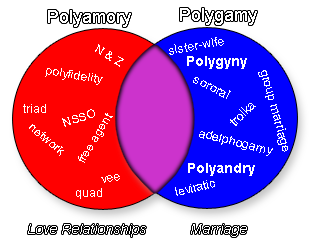 Polyamory and the various forms of Polygamy are not the same thing. You can have polyamorous people who are not married and you can have multiply-married people who do not have love relationships, although it is possible to have marriage and multiple love relationships co-exist.
Polyamory and the various forms of Polygamy are not the same thing. You can have polyamorous people who are not married and you can have multiply-married people who do not have love relationships, although it is possible to have marriage and multiple love relationships co-exist.
Polyamory applies equally to everybody. It's not about collecting women for your harem. Each individual relationship decides its structure to the agreement of everyone in it. Sometimes this means a full egalitarian structure. Occasionally this means the male(s) in the relationship have multiple relationships but not vice versa. And equally likely the female(s) in the relationship can have multiple partners and not vice versa. But more likely, each partner has however many partners they have the time and emotional capacity for, depending upon individual ability and orientation and not gender or sex. Whatever works for every single individual involved is acceptable. Polyamory is not about "owning" your partner(s), it's about sharing your life and your love with people.
As a matter of fact, polyamory is actually seen somewhat as a feminist movement. Certainly there are polyamorists who are not feminist, but the vast majority of our leaders, community organizers, and spokespeople are women. It's that egalitarian thing that makes the movement or the philosophy "feminist", regardless of whether or not any particular individual identifies as a feminist.
When women are given equal status to men, and equal opportunity to make their own choices for their lives, then even when those choices superficially resemble patriarchal or oppressive roles, the choice is actually a feminist choice ... or, at least, it's not oppressive. Women can choose to be stay-at-home parents, or they can choose to be sexually submissive in a BDSM sense, or they can choose monogamy, or they can choose any number of things like traditional gender roles that are forced onto other people, and as long as it's a free choice, with no individual or cultural pressure to conform to some standard or norm that doesn't really fit the woman, it is not oppressive and that makes it feminist.
However, within polyamory, there is actually a lot of deviation from those "traditional" roles. Women are equal contributors to their own relationships. Women set their own rules and boundaries. Women choose their own lives based on what works for them, and sometimes that's a male-headed household with several co-wives but most of the time it's the women having multiple partners of their own in roughly equal numbers to their male partners. And let's not forget the lesbians in our community, who may form families made up entirely of female-identified people, or the transgender, nonbinary, and alternate gender members of the poly community!
Because of the freedom that women feel to make their own choices and to explore their own wants and desires, as well as the release of traditional gender roles and a diversity of gender identities, many of our most outspoken proponents are women, feminine identified and nonbinary people, and cisfemale people. It's not really all that surprising that, when you give a group of people the freedom to be who they want to be and explore what they want to explore, especially when that group is traditionally oppressed, those people tend to embrace the culture that offers them those freedoms and to publicly espouse its benefits.
 I'm not really sure where this idea comes from or why it persists. For as common as this myth is, it certainly doesn't hold up in practice! This is based on a "starvation model" of love ... the idea that love is a quantifiable resource and stored in the heart like milk is stored in a pitcher. You can't give your "whole heart" to someone and have anything left to give anyone else. If you give love to another person, that love comes from the pitcher of love reserved for your first lover and therefore love given to someone new is love taken away from someone old.
I'm not really sure where this idea comes from or why it persists. For as common as this myth is, it certainly doesn't hold up in practice! This is based on a "starvation model" of love ... the idea that love is a quantifiable resource and stored in the heart like milk is stored in a pitcher. You can't give your "whole heart" to someone and have anything left to give anyone else. If you give love to another person, that love comes from the pitcher of love reserved for your first lover and therefore love given to someone new is love taken away from someone old.
What a bizarre concept! Biologically speaking, we both have two parents, right? For those who know both their parents and have healthy relationships with them, do you take love from your mother to have enough love for your father? What about kids? When your second kid comes along, do you take love away from the first kid? How do you answer the first kid when he says "why are you having a baby, mommy? Aren't I enough?"
The answer is that there is enough love in our hearts for more than one person. It's not about being "enough". When we fall in love with someone, the part of our brain that makes us attracted to other people does not magically shut off. Ever hear "I may be married, but I'm not dead"? Most monogamous people aren't really monogamous either, they're just sexually intimate with one person at a time ... at least in principle. And with statistics showing that as many as 34% of men between the ages of 50 to 64 admitting to have cheated at least once, evidence suggests that the principle isn't too widely practiced.
People are unique and individual human beings, and our relationships with them are as unique and individual as the people themselves. How many people profess to still love their "first love"? How many people have fulfilling and satisfying marriages only to be widowed and later fall in love with someone new without ever ceasing to love their deceased spouse? Even if you have a relationship with two identical twins, go to the same places, do the same things, spend exactly the same amount of time with each, you will have two distinctly different relationships with each twin. Every person is capable of having "love" for more than one person because each person, and each relationship with each person, are completely unique.
It's not about being "enough" or "adequate". People everywhere are better than someone else at *something*. No matter what you do, there is someone out there who is better at it than you. Not many people fear going to restaurants on the off chance their spouse will fall in love with the chef who cooks better than they do. So why is so much emphasis put on sex, or kissing, or same sex partners vs. opposite sex partners? These are activities ... and someone, somewhere, will be better at it than you. Everyone is unique and every experience is unique. People are not replaceable and interchangeable. At least, not to poly people.
It's true that some people do exist who are willing to dump their current partners if someone better comes along. But really, I don't want to be involved with someone who doesn't love me for who I am, but is only temporarily interested in what I can do. I know I am a person worthy of love and happiness. My relationships are not built around what we can do for each other, but on who we are. If my partner loves me for who I am, then it doesn't matter if someone else can provide the same activity that I can, or even if they're better at it than I am.
My partner loves me for me and enjoying an activity with someone else does not change that he loves me for me. Relationships are not a contest to be the "best" at something. Relationships are about opening yourself up to an intimate connection and allowing someone to open themself up to you. Besides, what if you or your partner learns something wonderful and new from your outside relationships and brings it into your relationship so that you can also enjoy it together?
Relationships "fail" and relationships end and that rarely has anything to do with the relationship structure, but rather it has to do with the compatibility of the people involved. Also, a relationship that ends is not necessarily a failure either. People naturally grow and evolve and sometimes they do not grow along complimentary paths to their partner. Some of us believe that any relationship that teaches you something, or brings joy to your life and has a natural conclusion is a successful relationship, even if it ends.
The Inn Between © 2002
Contact The InnKeeper